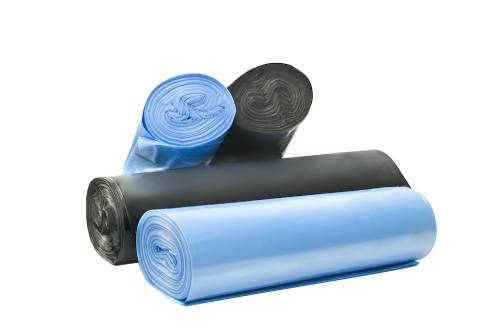
Degradable polythene bags are a greener alternative to conventional plastic bags. They were developed for environmental reasons and both compostable and degradable bags break down faster, which reduces the strain on recycling. Reducing waste is always the aim, but not all polythene is fed back into the recycling system. So by using degradable polythene bags you can help reduce the negative impact on the environment of those people and organisations that do not recycle. Organisations that are using bags heavily for their packaging could consider using these as an alternative. The switch to degradable bags can help to reduce plastic waste and this not only helps you to stick to a greener environmental policy, but can also be used as a marketing tool with your customers and potential customers. More and more people are seeking to shop and do business with what they deem to be more ethical companies and using degradable bags could help you attract these people.
Compostable and degradable bags have some subtle differences. While both share a shorter lifespan, they are still different. Compostable bags convert into carbon dioxide, water, and biomass when they break down. Degradable bags are broken down with heat and moisture. They also breakdown with the exposure to UV rays. The difference here means that there is a variation in their degradation speeds. Degradable bags take a lot longer to breakdown to microbic size, but compostable bags can be created with a variety of materials that are derived from other renewable resources. This includes tapioca, corn, wheat, and potato! Degradable bags are often produced with the introduction of calcium carbonate to the polyethylene used. This is what conventional plastic bags are made with, and the modification reduces how much plastic is used. The strength of the bags is improved, and degradable bags are better for the environment!
Advantages of Degradable Polythene
The obvious advantages of compostable bags are that they are excellent for the environment. Still, alongside this, they take less than half of the energy to produce as regular plastic bags. Not only this, but they release fewer chemicals and toxins when they are breaking down. Once compostable bags degrade entirely, the earth can safely absorb them – it’s why you can add them to your personal compost heap in the garden. The one disadvantage of compostable bags is that they are not as robust as degradable polythene bags – which is why degradable bags should be your priority. They also do not have a particularly long shelf life, only lasting weeks in the cupboard at home.
Degradable polythene bags can take up to 3 years to degrade, and while this sounds like a long time, it’s not as long as never! So, which do you choose? The goal here is to use a bag that makes a difference to the world around you, and this often rests solely on the shoulders of degradable polythene bags. If you know that the bags you are using will last you longer, take less energy to produce, and are not as expensive, you should turn your head toward it.
Degradable polythene bags outweigh other bag types exponentially. They are more efficient, and they are more robust, which means that your customers get a better service. No one wants to deal with split shopping bags and their shopping all over the floor, and if you can offer customers a thicker bag, you’re going to gain their loyalty, too!